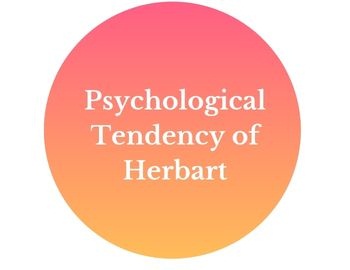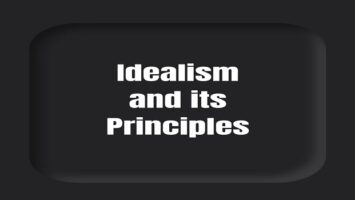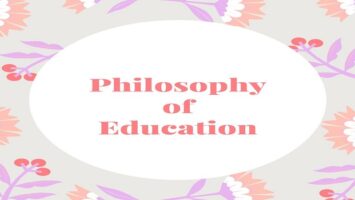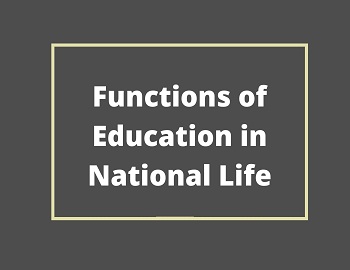Table of Contents
Empiricism:
Empiricism in a reaction against rationalism. John Locke revolts against Cartesian Rationalism, and propounds the doctrine of empiricism, in his Essay Concerning Human Understanding (1690). He criticizes Descartes’s doctrine of innate ideas and expounds on the doctrine of empiricism.
Locke’s Criticism of the Theory of Innate Ideas:
First, if there are innate ideas, they must be equally present in all minds. But Locke contends that there are no such ideas, which are universally present in the minds. Children, savages, idiots, and illiterate persons are quite unconscious of the so-called innate ideas. They are not conscious of the ideas of causality, infinity, eternity, God, and the like. If these ideas are innate in their minds, they must be conscious of them but they are not conscious. So they do not exist in their minds.
Secondly, if there are innate ideas in the mind, they must be the same in all minds. But the so-called innate ideas of God, morality, and the like differ in different societies, in different countries, and in different ages. They differ in different persons even at the same time in the same society.
Thirdly, even if there were the same idea in all minds, it would not prove their innateness.
Fourthly, the so-called innate principles are general truths, which are inductions from particular facts of experience. They are not primary facts of knowledge, but generalizations from particular facts, which are acquired from perception. Perception is experience. The child knows that sweet is sweet and that sweet is not bitter. These are particular facts of his experience. Later he generalizes the Law of Identity and the Law of contradiction from them.
The Program of Logical Empiricism:
Although the content of Logical Empiricism has been various, complex, and changing, it has maintained a quite constant interest in certain definite problems. These may be roughly summarized as an effort to establish an adequate theory of propositional meaning based on empirical verifiability, a critical theory of the syntactical structure of language and its semantic function in representing non-linguistic data, and a logically perfect language to which all the propositions of science can be reduced.
In recent years, Logical Empiricism has developed rapidly, frequently abandoning old arguments and these for new, a fact which makes it impossible to give a brief and full statement of its tenets.
Locke’s Empiricism:
Locke maintains that the mind is a tabula rasa in the beginning. It is like a clean slate, it has no innate ideas. It receives ideas from experience. Experience is twofold i.e. sensation and reflection. Sensation in extreme perception. Reflection is internal perception. Sensation is the source of our knowledge of external objects. Reflection is the source of our knowledge of the internal states of mind. There is not a single idea in the mind, which is not derived from session or reflection.
Thought depends on sensations. The mind is passive in receiving sensations. But it is active in comparing them with one another, combining them into complex ideas, and forming general ideas out of particular ideas. It can form complex ideas out of simple ideas. Simple ideas of colors, sounds, tastes, smells, and touch are derived from eyes, ears, tongue, nose, and skin, respectively. Simple ideas of extension, figure rest, and motion are derived from sight and touch. Perception, thinking, and volition are derived from reflection. The ideas of pleasure, pain, existence, power, and unity are derived from sensation and reflection. The mind receives simple ideas, it makes complex ideas. “There is nothing in the intellect which was not previously in the sense.” According to Locke, all knowledge is derived from experience; it is posterior to or after experience. Knowledge is inductive in procedure, and not deductive as Descartes and Spinoza think. Knowledge starts with particular facts of experience and makes generalizations from them. It does not start with some self-evident innate ideas or principles and deduce other truths from them. This theory is called the posteriori theory of knowledge. It is called empiricism because experience is the only source of knowledge. Locke is an empiricist, and yet he believes in the existence of matter, mind, and God. According to him, “We have sensitive certainty of the existence of matter; we have intuitive certainty of the existence of God. We are compelled to assume the existence of matter as the unknown and unknowable substratum of primary qualities- extension, solidity, figure, rest, and motion, which are real and known through sensation or external perception. The mind is the substratum of the powers of perceiving, thinking, feeling, and willing. We infer the existence of God from the external world as its maker. We form the idea of the infinite by the negation of the finite. Descartes is a rationalist. He believes in the existence of matter, mind, and God. The existence of this self is known by the institution. The existence of God and the world is known by reason. Thus Descartes and Locke reach the same metaphysical conclusions, though they advocate the opposite theories of knowledge, viz, rationalism and empiricism, respectively.
Criticism of Locke’s Empiricism:
Loki is right in holding that the mind has some active powers and that it has the powers of perception, retention, discernment, composition, and abstraction. Discernment is the power of distinguishing things from one another. Abstraction is the power of forming general ideas. Locke rightly maintains that the first materials of knowledge are derived from experience, sensation, and reflection. He is also right in holding that sensation precedes reflection, and that the child reflects upon the materials supplied by external perception. But he is wrong in holding that the mind is in the beginning, a tabula rasa. The child acquires knowledge by reaching the environment according to his native abilities. Knowledge is not a mere reception of sensations but an interpretation of them, and their interpretation is an act of reason. Experience, and reason both contribute to the building up of knowledge. There are certain universal and necessary factors in knowledge, that are supplied by the reason. Experience gives only particular and contingent truths, which are reduced to a coherent system by reason. The part played by reason in the acquisition of knowledge cannot be ignored. The empiricism of Locke is as one-sided as the rationalism or apriorism of Descartes. Locke himself is not a consistent empiricist. He admits the validity of the ideas of infinitude and eternity, though he fails to derive them from experience. He admits that the mind has the power to form abstract ideas or general notions, which represent many individuals of the same kind, which produce only particular ideas through experience.
Logical Empiricism:
When “empiricism”, which relies on observation based on our five plus sensors, is further supplemental and clarified by the application of “logic” it is termed “logical empiricism”. It is an empirical philosophy that emphasizes perceptual experience rather than speculative reasoning. Logical empiricists take the physical world experience through the senses as real. They say that the physical world would continue to exist even if there is none to observe it. The universe is governed by natural laws, like cause and effect relationships which work mechanically.









Comments (No)